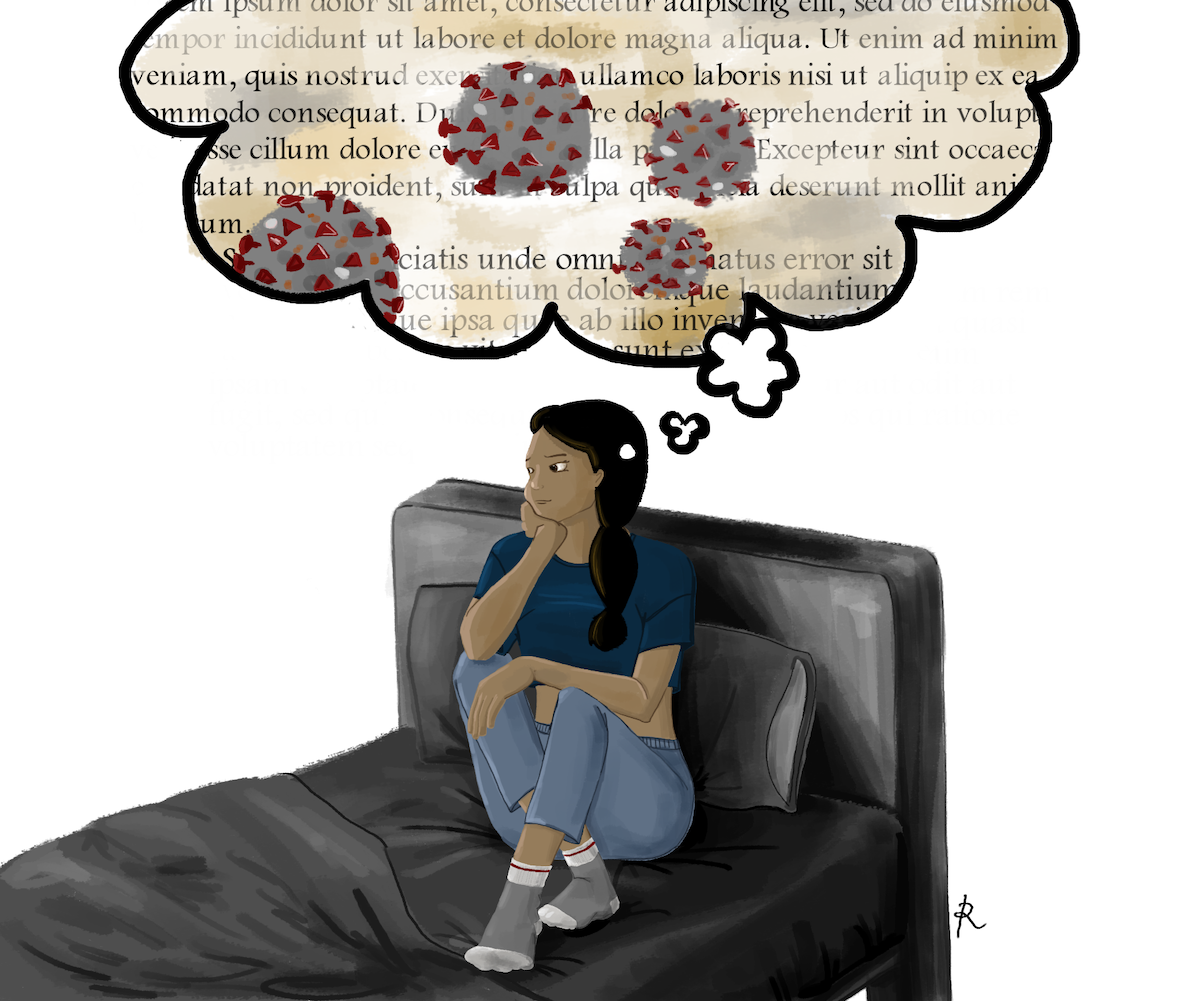At the start of each school year, McGill’s campuses bustle with life. Separated friends reunite, while eager newcomers explore the grounds in awe. However, with McGill’s announcement that the Fall 2020 semester will proceed remotely, the usual energy of campus life is anticipated to be changed drastically.
Remote semesters are just one of many protective measures adopted by universities and colleges worldwide to help combat the rapid spread of COVID-19. Unfortunately, the same social distancing measures that have succeeded at reducing the spread of COVID-19 have in turn led to adverse psychological effects on many students.
“Social distancing has resulted in social isolation for many, which can have negative impacts on our mental health and well-being,” Jos Porter, Local Wellness Advisor at the McGill Student Wellness Hub, wrote in an email to The McGill Tribune.
Since the start of lockdown measures, students have reported experiencing heightened feelings of anxiety and depression. Many specified that the lack of regular social interaction was a common factor behind their increased stress levels.
When people engage in social interaction, their brains release a chemical called oxytocin, a hormone produced by the hypothalamus, which plays a vital role in various social functions, such as social recognition and bonding behavior. Scientists hypothesize that oxytocin is released during stressful situations to dampen the physiological response and thus also the psychological effects of stress.
Some doctors worry that lowered levels of oxytocin due to lack of social interactions may result in increased levels of stress and anxiety, presenting additional problems for those with or predisposed to anxiety disorders.
“People who, prior to the pandemic, were already struggling with mental health issues will probably fare worse during the pandemic under the effects of stress,” Anna Weinberg, Assistant Professor in McGill’s Department of Psychology, said in an interview with the Tribune. “People who are experiencing more severe stressors are going to be more vulnerable to the effects of stress on mental health.”
Loneliness and anxiety have repeatedly been shown to have negative effects on the human body. Loneliness has been linked to an increase in the concentration of cortisol, another hormone in the body’s stress response pathway. Under normal circumstances, cortisol helps regulate mood, motivation, and fear but during periods of extended stress, cortisol levels in the brain can rise to dangerously high concentrations that come with their own set of health concerns.
Weinberg described some of the effects cortisol has on the brain, including the possibility of tissue damage.
“If you have a lot of cortisol flowing through your body, one of the things that you see is damage to the hippocampus,” Weinberg said in an interview with the Tribune. “It can cause death in some of the cells in the hippocampus and decreased connection [between] cells.”
Prolonged overexposure to stress hormones has been correlated with damage to hippocampus cells, which can cause lowered cognitive functionality, memory loss, and trouble concentrating. Issues with concentration and memory could present further problems for university students once online classes begin in September. Coupled with “zoom fatigue,” high stress levels can trigger the perfect storm of disengagement and physical strain.
“Physiologically, we know that stress exerts a huge toll on the body,” Weinberg said. “You can see people develop digestive issues, chronic muscle tension, problems with their jaw and musculature around their necks.”
Fortunately, there are some steps that the average stressed student can take to mitigate the adverse psycho-social effects of social distancing.
“The key elements here are to stay connected, stay occupied, and to stay active,” Porter wrote. “Physical activity is so important for our mood, quality of sleep, and ability to concentrate, not to mention our overall health.”
Sleep, meditation, and maintaining a consistent routine are other scientifically proven approaches for students to cope with the psychological and physiological effects of quarantine, beat the burnout and, hopefully, return to classes refreshed come the new year.









